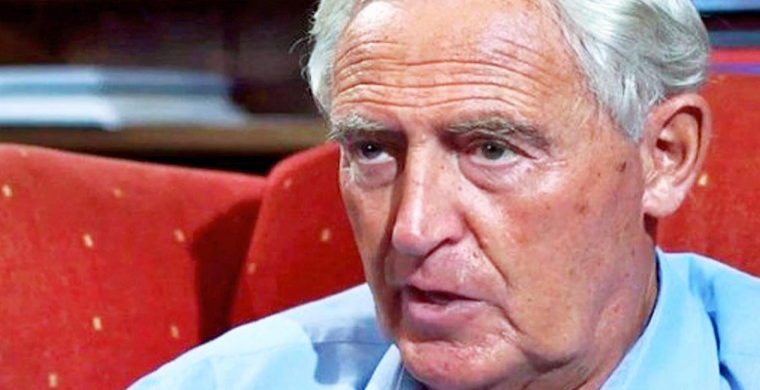Jonathan Fletcher -- "the Pope of Conservative Evangelicalism" -- was an abusive bully
by Martin Sewell
Archbishop Cranmer Blog
March 23, 2021
The long awaited report by safeguarding charity Thirtyone:eight into the abuse perpetrated by the Rev'd Jonathan Fletcher of Emmanuel Church Wimbledon was published at midnight. As with other poster boys of his style of churchmanship like John Smyth QC and Ravi Zacharias, the man dubbed by Private Eye "the Pope of Conservative Evangelicalism" has been shown to be an abuser, a liar, and a humbug.
The report will attract attention from various quarters, although what one sees in it may depend upon what one is looking for. Some will naturally be disappointed. If you are looking for a clear expose of those who were complicit in the abuse by their silence, by looking the other way, or by closing their minds to the obvious, you will not find it. Names are not named: this was not permitted by the terms of reference set by Emmanuel Wimbledon.
If you seek clear chronologies setting out who did what to whom and when, thereby enabling the abuse of others through a culture of obedience and sotto voce threats of exclusion for non-compliance, you will also be disappointed. Such detail is simply not there: it was not allowed.
Given 28 days' notice of publication, Emmanuel Wimbledon are putting on a brave face. I understand they secured professional advice on damage limitation.
Some will understand what they are reading better than others. The names of those who succumbed to the power and the snobbery of the Rev'd Jonathan Fletcher, and who were duly rewarded with plum positions within the ReNew constituency, are well known to insiders of the world he inherited from EJH Nash and the Iwerne camps. Whereas Jesus trusted the lowly fishermen of Galilee to evangelise the world, Fletcher patronised (in both senses of the word) "special boys from special schools". Thus in the world he inhabited and came to dominate, advancement depended upon his approval largely predicated upon good old British class consciousness.
Entering the world of Iwerne required not simply that you went to public school, but that you went to the 'right' public school. This was the essence of Nash's strategic vision. There was segregation at the outset: those from the schools of the elect went to Iwerne; the others went to a camp for the lower orders. Fletcher's coterie is not obviously representative of diverse Britain. You may well fellow-travel theologically, but the "advancement within" culture described in the report is one which was obviously not open to all.
When rumours of Fletcher's abuse and homoerotic 'activities' arose, many in influential positions initially closed their eyes and kept them shut for as long as possible. Eventually reality caught up, and the Charity Commission encouraged the Trustees to engage Thirtyone:eight to assist with a review of its safeguarding policies and practices.
The consequent report is incidentally highly critical of the Church of England National Safeguarding Team for ignoring all the signs and pleas to act. It failed to coordinate the information at an early stage. There may not even have been a file on this highly influential abuser.
Others within the Conservative Evangelical fold have used the fall of Jonathan Fletcher to assert the truth that Bible-based exegesis is open to a wider talent pool than the Iwerne model allowed -- maybe those with a regional accent; those who would not put up with the arrogance of power; or even the occasional woman might utter a challenging truth that bullying has no place in church fellowship, and that powerful abusive men do not simply groom individual victims, but entire congregations, making it hard for those of lower status to be heard when things go wrong.
Yet, as always in Christianity, there is hope. Decent Conservative Evangelicals who share all of Jonathan Fletcher's theological views and exegetical methodologies have stepped away from the power structures that made him seemingly omnipotent, infallible, and unhealthily unaccountable and unchallengable.
If you do not have time to read the lengthy Thirtyone:eight report, there is an excellent summary of the concerns of the Independent Advisory Group. Regular readers of this blog may have noted that I have consistently referenced ordinary decent Conservative Evangelicals with whom common cause has been made to protect the vulnerable in every church setting. I salute their integrity, call them my friends in the struggle for integrity, and urge you to heed their voice.
END














